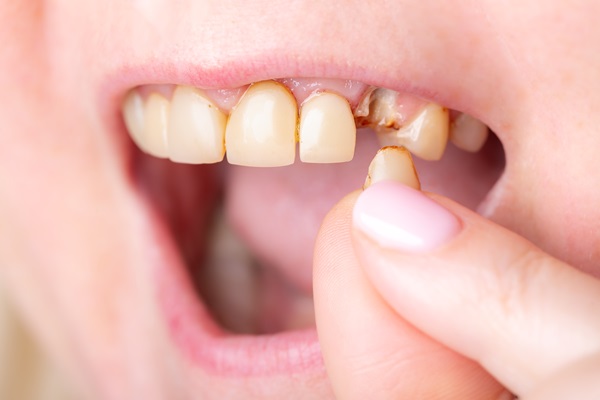What to Do When You Have a Broken Tooth: Expert Dental Advice

Having a broken tooth can be a stressful situation, but it does not need to permanently alter your smile. Knowing what to do immediately after a tooth breaks or if it cracks can mean the difference between needing an implant later and saving the original tooth.
A broken tooth is an urgent matter, and in many cases, time is of the essence. Patients who know what to do as soon as the break occurs are more likely to see positive results. Equally importantly, they are able to stay calm!
Breaking a tooth does not have to be scary. Here are the main things that you should know when you have a broken tooth.
A broken tooth: Next steps
Patients who experience a tooth break should act quickly to salvage what they can. Smart decisions early on can help the dentist use existing tooth pieces for the repair rather than need to perform more invasive treatment.
Save the tooth pieces
A broken tooth is characterized by a break that has dislodged at least one piece of the tooth. Usually, the piece is completely gone, but patients should still try to find any missing pieces of the tooth as soon as possible. Store them in milk or if possible, inside the patient’s mouth to keep them in good condition for as long as possible. The dentist can often use these to restore the tooth.
Children are especially prone to breaking teeth due to their vigorous play and a generally higher level of recklessness than adults. So, having them hold the tooth pieces in their mouth can be risky, as they may accidentally swallow them.
Cover the tooth
Another important step after a tooth break is to stop bleeding and control the site. The exposed interior of the tooth is susceptible to bacterial infiltration, so it should be covered as soon as possible. Using gauze is a good option. However, patients with minor breaks who have the luxury of stopping by the store can benefit from dental wax. It is simple to apply and can create a barrier until the patient can see the dentist.
Avoid eating or drinking on the side of the mouth with the broken tooth until the dentist can take a look. The fewer outside contaminants introduced to the area, the better.
Address pain management
Whether a broken tooth hurts depends on where the break is located and if it impacts the nerves inside the tooth’s pulp chamber. The sudden shock of the injury can cause soreness even if the nerves are not exposed. This type of pain is most easily managed with over-the-counter pain relievers.
If a patient is planning on waiting until the next day to seek treatment from a dentist, it is wise to start a pain management strategy as soon as possible after the break. Stopping pain ahead of time is easier than getting it to go away after the fact, and it can also help control swelling.
Is a broken tooth an emergency?
As with many dental issues, a broken tooth can be an emergency, but it depends on its severity. If the tooth is bleeding and the patient cannot get it to stop or if the bleeding is excessive, it is best to seek urgent medical care. Patients should try not to swallow the blood, as this can cause nausea and vomiting.
Another reason that a broken tooth might constitute an emergency is if the center of the tooth is exposed, as infection can begin to set in quickly. This can cause abscesses and threaten the long-term health of the pulp. It can also spread to other areas of the body.
Similarly, a patient who is feeling severe pain after a broken tooth should be seen as soon as possible. Many patients note that over-the-counter medication might not fully remove the discomfort when it comes to severe tooth issues.
That said, a broken tooth might not necessarily require a same-day visit. In the case of a minor break, a patient can visit the dentist the next day for help.
Seek help for a broken tooth
If you have a broken tooth, seeking treatment soon is vital to ensure the long-term health of the oral cavity. However, there are many steps that you, as the patient, can take between breaking a tooth and visiting the dentist to increase the chances of treatment success. Do not hesitate to reach out to our office if you have experienced a tooth injury so we can give you guidance!
Request an appointment here: https://www.gledhilldental.com or call Gledhill Dental at (509) 800-8410 for an appointment in our Kennewick office.
Check out what others are saying about our dental services on Yelp: Dental Restorations in Kennewick, WA.
Related Posts
Any dental work that is done to repair missing or damaged teeth are types of dental restorations, which can include anything from minor fillings to full implants. How long these restorations take depends entirely on what kind of work is necessary. Some procedures can be performed in a single short appointment, while others might be…
Wondering if a dental restoration is in your near future? According to Cleveland Clinic, restorations are the various ways a dentist can replace or restore missing teeth or missing parts of the tooth structure. Ready to learn more about dental restorations?Understanding more about the dental restoration process, as well as the types of restoration options available,…
A restorative dentist can help transform dental health and restore confidence in your smile. These dental professionals address a variety of dental issues, from missing teeth to damaged enamel. The goal of restorative dentistry is to improve both the function and appearance of your teeth, allowing you to achieve better oral health and renew your…
As you age, your teeth face challenges from numerous issues. Daily wear from chewing food or stress-related grinding, gum problems from bacteria build-up, and tooth damage from the foods and drinks you consume all play a role in the deterioration of your smile.You and your dentist share a common goal: caring for and preserving your…


